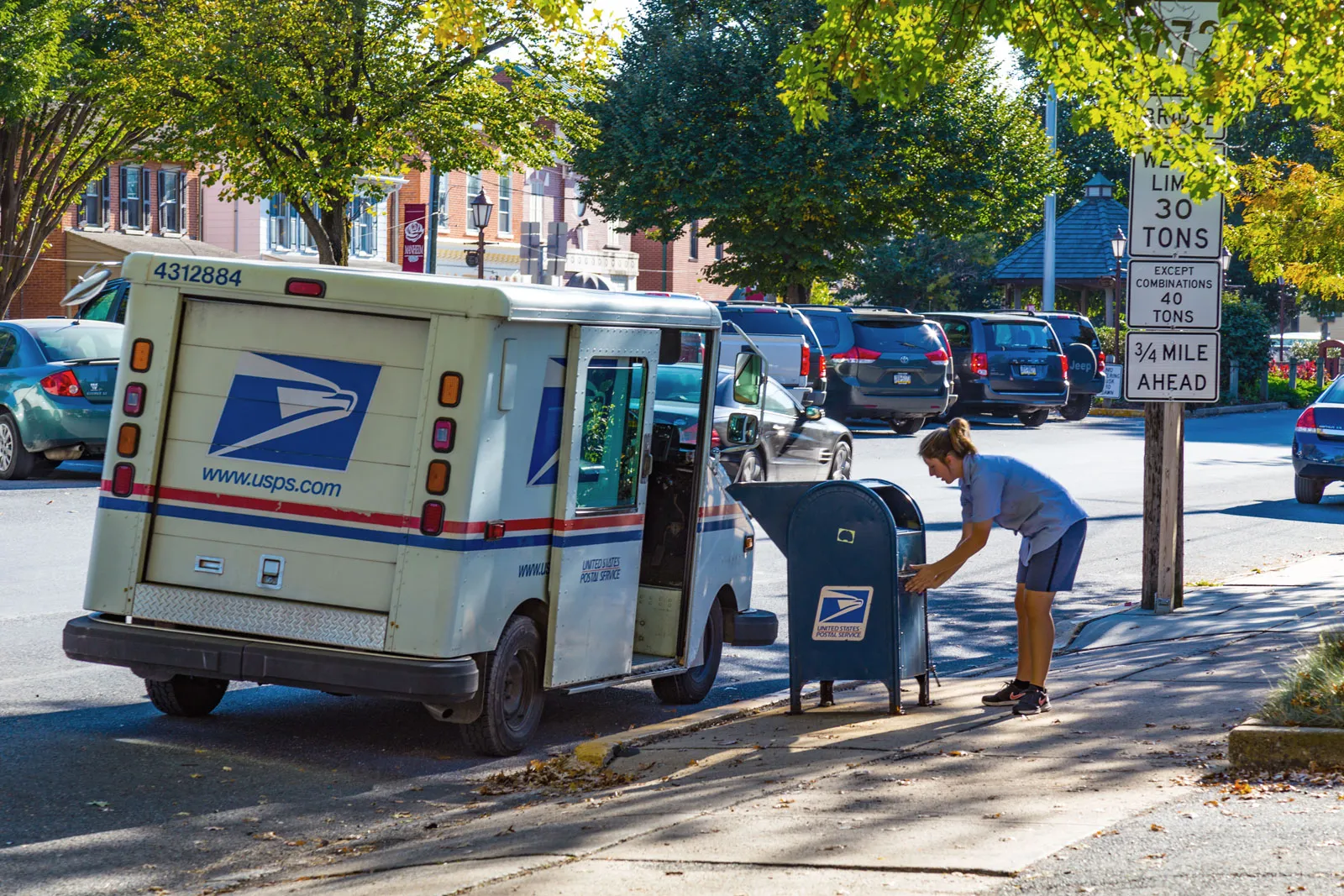November 4, 2024
In the months leading up to the 2024 U.S. presidential election, the U.S. Postal Service (USPS) has found itself at the center of controversy over how it handles absentee and mail-in ballots. Allegations of ballot mishandling, shifts in sorting policies, and foreign involvement in ballot shipments have raised concerns about the USPS’s transparency and the integrity of the voting process.
The roots of this alleged scandal trace back to the 2020 election when a USPS subcontractor named Jesse Morgan claimed he transported a truckload of ballots from Bethpage, New York, to Pennsylvania. Morgan’s story, which he shared with Lt. Col. Tony Shaffer, a retired CIA-trained intelligence officer, was met with skepticism and reportedly suppressed by then-Attorney General Bill Barr. Shaffer claimed that, despite his belief in the validity of Morgan’s account, he was pressured by Barr to cease his investigation, allegedly because the FBI was handling it. Morgan later faced questioning from the FBI, where he reported feeling intimidated and accused of fabricating the story.
More recently, reports indicate that USPS changed its delivery and sorting methods for absentee mail-in ballots, further fueling concerns. Previously, ballots passed through central sorting facilities, which created electronic images of each ballot for tracking. However, a recent directive reportedly orders that ballots bypass these facilities, potentially avoiding the creation of these images. Critics claim this could erase critical tracking data that helps monitor ballot counts and distribution.
Peter Bernegger, an election integrity advocate, shared a statement alleging that the USPS now delivers absentee ballots directly to local clerks without routing them through central facilities. This shift, Bernegger claims, hides evidence of absentee mail-in ballot activity, sparking concerns over ballot integrity and traceability. This change, confirmed by several postal locations, has stirred anxiety that ballots might not be accurately recorded in real-time, raising questions about transparency.
Adding to the complexity of the alleged scandal, a recent report suggests that semi-trailers and containers filled with ballots were transported along the West Coast, with some possibly coming from overseas locations. An unnamed source claimed that containers, potentially holding up to 100,000 ballots each, were picked up from a West Coast port and delivered directly to USPS facilities. Speculation has grown that some shipments may have originated in countries with vested interests in the election outcome, heightening concerns over foreign interference.
According to sources, a major U.S. ballot printer may have been listed on the shipment’s documentation, which raises questions about the legality of printing and transporting ballots from foreign locations. The truck drivers involved reportedly found the situation unusual and expressed concerns over the secrecy surrounding the cargo.
One figure drawing scrutiny is Amber McReynolds, a former executive at the National Vote at Home Institute who was appointed to the USPS Board of Governors. McReynolds has been linked to vote-by-mail advocacy and, according to the Capitol Research Center, has connections to organizations funded by prominent progressive donors. Critics allege that her role could influence USPS policies in favor of expanding mail-in voting, potentially contributing to the USPS’s operational changes that some believe compromise election security.
Election integrity advocates argue that the USPS’s operational changes and alleged irregularities demand an independent investigation. Former Trump advisor Jeffrey Clark has criticized the DOJ for not investigating alleged election irregularities in key swing states during 2020. Now, calls for accountability have resurfaced, with demands that USPS clarify its policies on absentee ballots and disclose any changes in ballot processing and distribution.
Amid these allegations, USPS’s role in the 2024 election is under heightened scrutiny. Critics argue that bypassing central sorting facilities removes a key layer of transparency and accountability, potentially enabling ballot mishandling. Combined with suspicions of foreign involvement and unexamined policy changes, the USPS’s recent actions have led some to question whether the mail service can maintain its trusted position in handling critical election materials.
Sources
- New York Post
- Capitol Research Center
- Peter Bernegger on Twitter
- Statements from Lt. Col. Tony Shaffer and Jesse Morgan
- The Gateway Pundit
*Parler has not verified the validity of the claims made by Mr. Bernegger.

